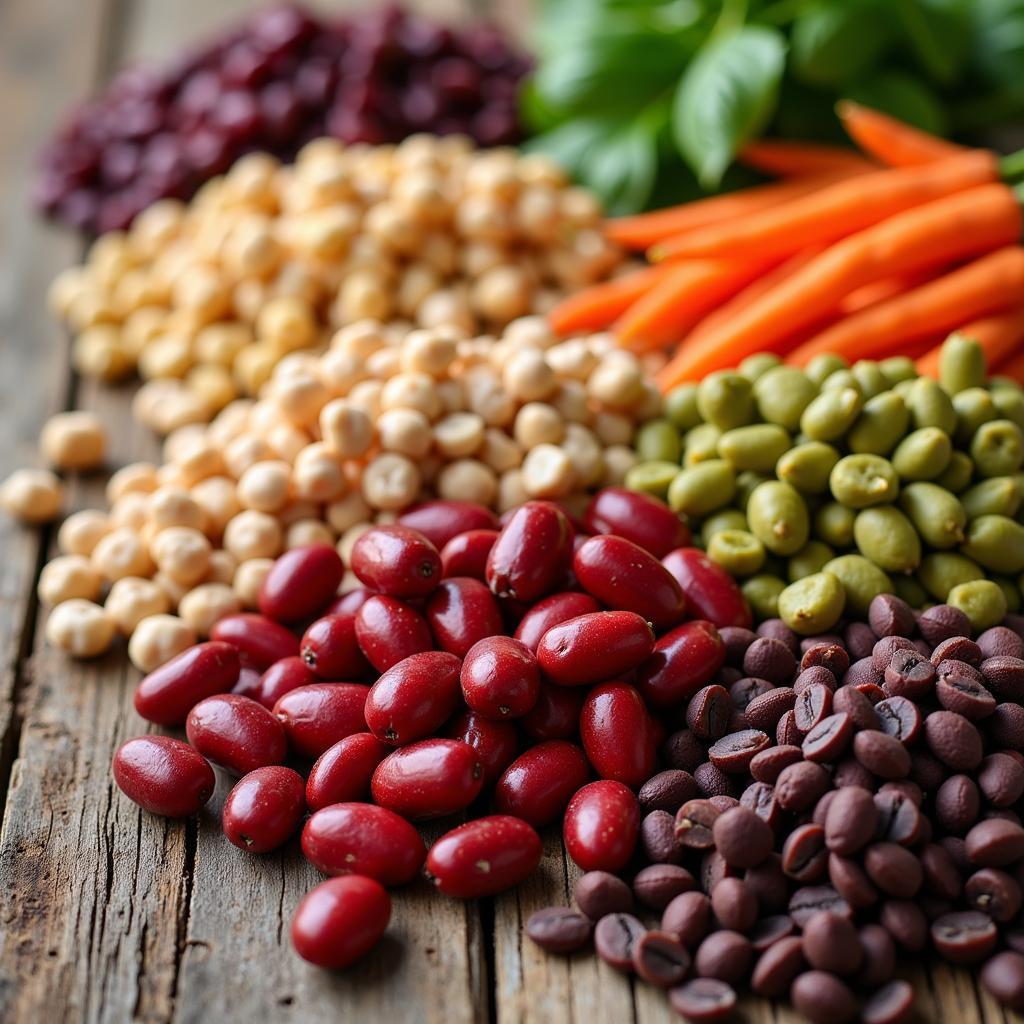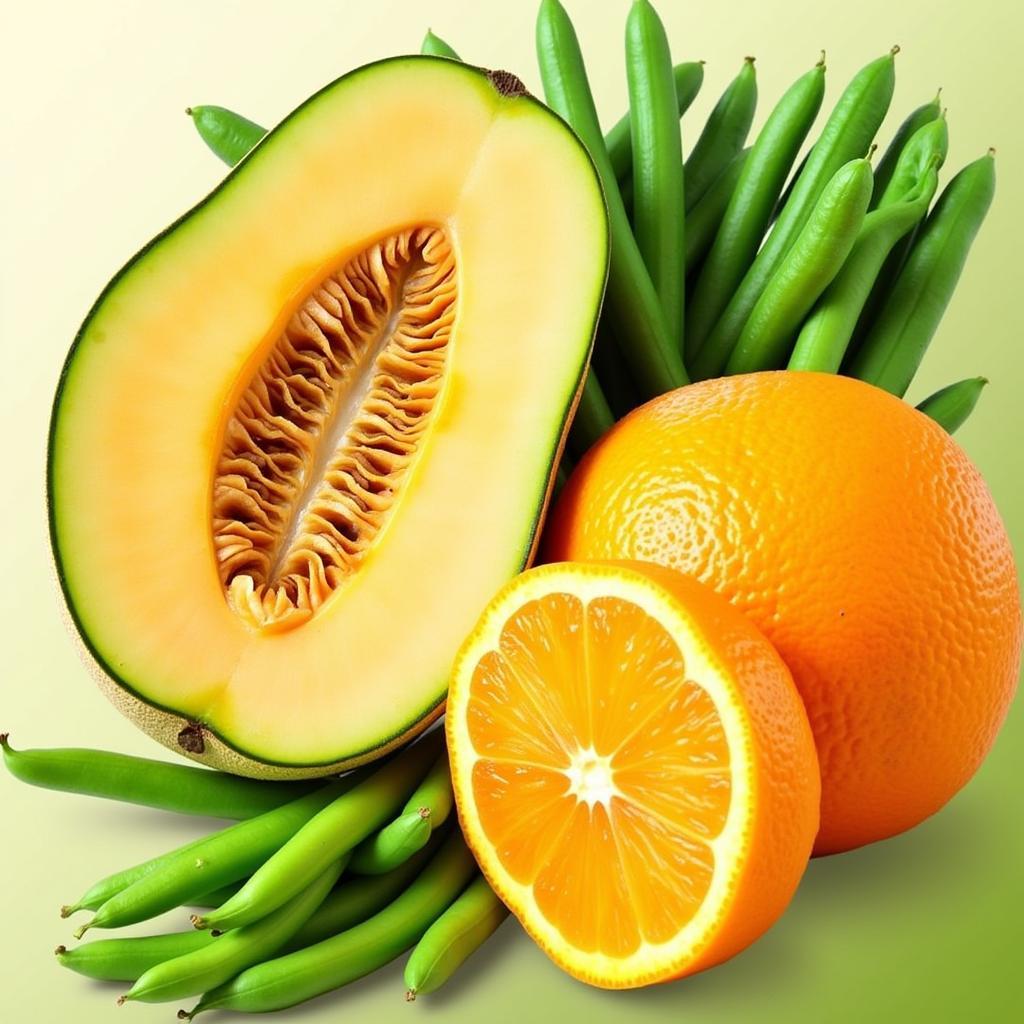Inositol, a naturally occurring compound found in the body and various foods, plays a crucial role in numerous bodily functions. From supporting mental well-being to promoting hormonal balance, inositol has garnered significant attention for its potential health benefits. If you’re looking to boost your inositol intake naturally, incorporating specific foods into your diet can be incredibly beneficial.
What is Inositol and Why is it Important?
Inositol, sometimes referred to as vitamin B7, isn’t a vitamin in the traditional sense. It’s a carbohydrate-like substance that your body uses for a variety of functions. It’s found in every cell, with particularly high concentrations in the brain, heart, and muscles.
But why is inositol so important?
- Brain Messenger: Inositol acts as a secondary messenger for neurotransmitters, those chemical messengers in your brain responsible for mood, sleep, and cognitive function.
- Hormonal Harmony: For women, inositol plays a vital role in regulating insulin sensitivity and hormone balance, which can be particularly helpful for those with Polycystic Ovary Syndrome (PCOS).
- Mood and Relaxation: Studies suggest that inositol might have mood-boosting effects and could play a role in alleviating anxiety.
Delicious Food Sources of Inositol
While your body can produce small amounts of inositol, getting a good amount through your diet is key. Here are some of the top Food Sources Of Inositol:
1. Legumes: Tiny Beans, Big Benefits
Legumes, like beans and lentils, are nutritional powerhouses packed with fiber, protein, and – you guessed it – inositol!
- Kidney beans: A simple cup of cooked kidney beans provides a significant amount of inositol.
- Chickpeas: These versatile legumes, enjoyed in hummus or roasted to crispy perfection, are a great source of inositol.
- Lentils: A hearty and flavorful addition to soups, stews, or salads, lentils offer a good dose of this beneficial compound.
 Inositol-Rich Legumes
Inositol-Rich Legumes
2. Whole Grains: Nourishment From the Inside Out
Whole grains are an excellent source of fiber, vitamins, and minerals, and they also provide a good amount of inositol.
- Brown rice: Opt for this nutritious alternative to white rice to boost your inositol intake.
- Oats: Enjoy a warm bowl of oatmeal for breakfast or add oats to smoothies and baked goods.
- Barley: This chewy and nutty grain is a versatile ingredient for soups, salads, and side dishes.
3. Fruits and Vegetables: Nature’s Bounty of Inositol
Fruits and vegetables are essential for overall health, and many of them contain inositol.
- Cantaloupe: This juicy melon is a refreshing and inositol-rich summer treat.
- Oranges: Enjoy this citrus fruit on its own or squeeze it into a glass of water for a vitamin C and inositol boost.
- Green beans: These crisp vegetables are a delicious and easy way to add more inositol to your meals.
 Colorful Inositol Sources: Fruits and Vegetables
Colorful Inositol Sources: Fruits and Vegetables
4. Nuts and Seeds: Small but Mighty Sources
Nuts and seeds are packed with healthy fats, protein, and other essential nutrients, including inositol.
- Brazil nuts: These large nuts are an excellent source of selenium and also contain inositol.
- Sunflower seeds: Sprinkle these crunchy seeds on salads, yogurt, or enjoy them as a snack.
- Sesame seeds: These tiny seeds are packed with flavor and nutrients, including inositol.
5. Other Noteworthy Sources
- Meat and poultry: While not as high in inositol as plant-based sources, meat and poultry still contain small amounts.
- Eggs: A breakfast staple, eggs provide a good source of protein, choline, and some inositol.
Boosting Inositol Intake: Tips and Considerations
- Combine food sources: Aim for a varied diet rich in fruits, vegetables, whole grains, and legumes to maximize your inositol intake from different sources.
- Supplementation: Inositol supplements are available in various forms. Consult with your healthcare provider to determine if supplementation is right for you.
Conclusion
Inositol plays a vital role in various bodily functions, from supporting mental well-being to promoting hormonal balance. By incorporating inositol-rich foods into your diet, you can naturally boost your intake of this essential compound. Remember to consult with your healthcare provider or a registered dietitian to determine the appropriate inositol intake for your individual needs.
Frequently Asked Questions about Inositol Food Sources
Q: Can I get enough inositol from food alone?
A: For many individuals, a balanced diet rich in inositol-containing foods can provide sufficient amounts. However, factors like individual needs and health conditions might necessitate supplementation.
Q: What are the signs of an inositol deficiency?
A: Inositol deficiency is relatively uncommon, but some potential signs include mood changes, sleep disturbances, and hair loss.
Q: Are there any risks associated with consuming high amounts of inositol?
A: Inositol is generally considered safe when consumed in moderate amounts through food. However, excessive supplementation may lead to mild digestive discomfort. It’s always best to consult with your healthcare provider before starting any new supplements.
** Need help incorporating inositol-rich foods into your diet? Contact Mina Cones Food at Phone Number: 02437655121, Email: minacones@gmail.com Or visit us at: 3PGH+8R9, ĐT70A, thôn Trung, Bắc Từ Liêm, Hà Nội, Việt Nam. We have a 24/7 customer support team.